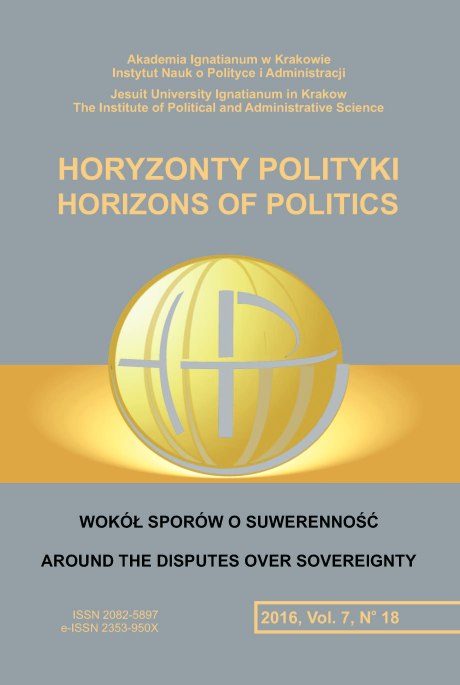Suwerenność podmiotu moralnego a suwerenność dobra
Sovereignty of moral agent and sovereignty of good
Author(s): Marcin BaranSubject(s): Ethics / Practical Philosophy, Political Philosophy, Social Philosophy
Published by: Uniwersytet Ignatianum w Krakowie
Keywords: sovereignty of moral agent;autonomy;sovereignty of good;moral sources;moral obligation;
Summary/Abstract: RESEARCH OBJECTIVE: The following article aims to identify the main reasons that make it impossible to reconcile the modern notion of sovereignty or autonomy of the moral agent with the notion of the really existing sovereign good.THE RESEARCH PROBLEM AND METHODS: The main emerging research problem is to identify the sources of motivation behind the limitation of modern ethical thinking. For this purpose the author implements the interpretive stance inspired by Charles Taylor. It consists in exploring the moral motivation underpinning particular views on moral philosophy.THE PROCESS OF ARGUMENTATION: It begins by indicating the motivations that fuel the twofold limitation of the good part of modern ethical thinking. The first restriction consists in reducing moral philosophy to questions of making any serious reference in ethical considerations to an objective moral source which exists independently from the human agent, be it Good, value or God. Following Taylor, who draws on Iris Murdoch, there are listed two reasons for the first limitation: the affirmations of ordinary life and the disengaged reason. As for the second restriction the influence of the “Enlightenment myth” and the “metaphysics of the modern world” which is implied by it are indicated as its determinants.RESEARCH RESULTS: The analysis brings the author to conclusion that that the main reasons for the impossibility of a reconciliation between the sovereignty of the moral agent and the notion of a really existing sovereign good are the “Enlightenment myth” and the “metaphysics of the modern world”.CONCLUSIONS, INNOVATIONS AND RECOMMENDATIONS: The article concludes with the observation that either the “Enlightenment myth” or the “metaphysics of the modern world” are vastly uncritically assumed in contemporary ethical thinking. It is necessary to articulate and verify them, to which this article is a modest contribution and exhortation.
Journal: Horyzonty Polityki
- Issue Year: 7/2016
- Issue No: 18
- Page Range: 91-105
- Page Count: 15
- Language: Polish

